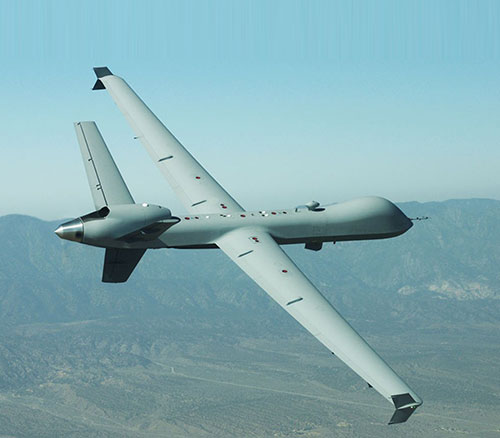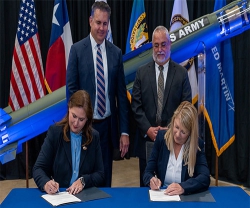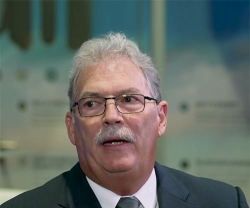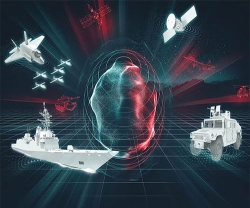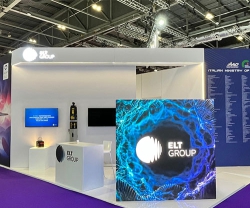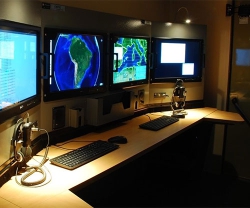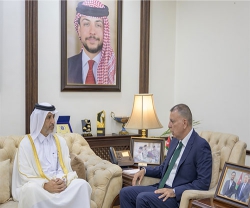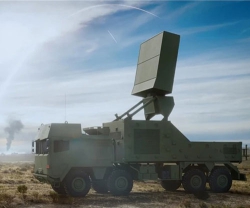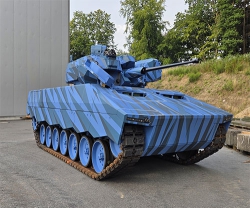On January 8th General Atomics Aeronautical Systems, Inc. (GA‑ASI) for the first time flew a new MQ-9 Remotely Piloted Aircraft (RPA) to a customer location at Holloman Air Force Base in New Mexico.
Typically a new MQ-9 is packed and shipped by GA-ASI for reassembly after delivery. Ferrying the MQ-9 to Holloman saves costs and time in shipping, reducing time for airmen to reassemble the aircraft, making it available for training immediately upon arrival.
A key aspect of delivery was flying the RPA through the National Airspace System (NAS) after originating from GA-ASI’s Flight Operations Center in Palmdale, Calif. GA-ASI and Holloman air crews worked together to ensure the successful ferry of the aircraft.
“GA-ASI continues to lead the charge towards enabling large unmanned aircraft to fly in the NAS. Our efforts, along with other partners, are gaining momentum and successfully flying the MQ-9 to our U.S. Air Force customer further demonstrates the safety and efficiency of RPA flight in the broader airspace,” said David R. Alexander, President, GA-ASI.
The USAF estimates that ferrying the MQ-9 saved 142 man hours.
“This is the first time that team Holloman has taken delivery of a new MQ-9 by ferry flight,” said Col. Casey Tidgewell, 49th Operations Group commander. “It’s critically important because flying outside of our training area helps normalize RPA flight inside the NAS and provides broader aviation experience for our instructors. I could not be more proud of our operations and maintenance professionals that made this happen,” he added.
GA-ASI has flown several RPA flights in the NAS while working with the FAA and other authorities to secure proper approvals. The company continues to work towards a future where its RPA can simply “file and fly” in the NAS just like commercial flights.
General Atomics Aeronautical Systems, Inc. (GA-ASI), an affiliate of General Atomics, is a leading designer and manufacturer of proven, reliable Remotely Piloted Aircraft (RPA) systems, radars, and electro-optic and related mission systems, including the Predator® RPA series and the Lynx® Multi-mode Radar.
With more than six million flight hours, GA-ASI provides long-endurance, mission-capable aircraft with integrated sensor and data link systems required to deliver persistent flight that enables situational awareness and rapid strike.
The company also produces a variety of ground control stations and sensor control/image analysis software, offers pilot training and support services, and develops meta-material antennas.

